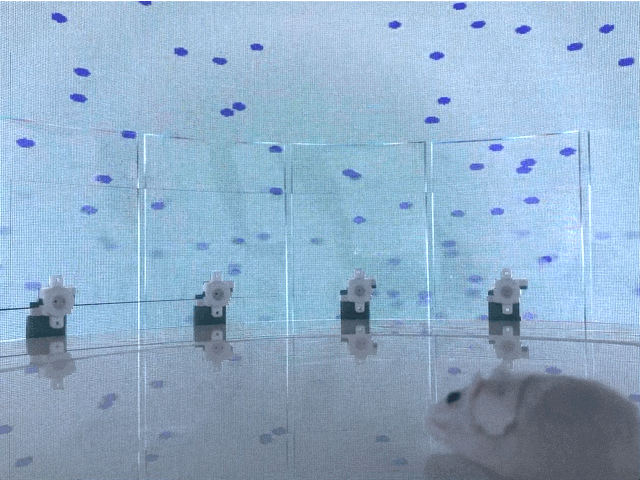Open PhD Positions
We’re having lots of fun designing behavioural tasks to study the neural circuits of spatial orientation in mice, and we’re looking for PhD candidates to join the adventure!
Two positions are available for highly committed and self-driven students to begin their PhD projects in Autumn 2026, or earlier if eligible for external funding outside the Cambridge funding cycle. The projects focus on investigating the neural circuits underlying spatial orientation and self-motion perception in the mouse model. They offer the opportunity to combine innovative quantitative behavioural assays with in vivo electrophysiology (Neuropixels) or two-photon calcium imaging, and circuit manipulation techniques.
Our research centres on thalamic and cortical circuits involved in navigation and the integration of internal and external sensory information for optimal decision-making. We are also interested in how ageing affects spatial orientation computations and aim to uncover the underlying mechanisms.
Key Experience and Competencies:
The ideal candidates will have:
Excellent academic performance in neuroscience, engineering, or other relevant disciplines.
Relevant research experience, particularly in neurophysiological techniques, animal behaviour, or stereotactic surgery.
Proficiency in programming (Python or MATLAB).
Strong communication skills in English, both written and verbal.
Admission:
We encourage candidates to review the requirements for entering our PhD programme and explore the available funding opportunities, including the Cambridge Biosciences DTP PhD Programme. Familiarise yourself with the application process and understand what to expect after submitting your formal application. Depending on your country of origin or previous study, additional funding opportunities may be available.
For exceptional candidates, there is a possibility of joining the lab as a research assistant, with lab funding available to support their PhD in case their scholarship application is unsuccessful.
How to Apply:
To apply, please send the following documents to sk2244@cam.ac.uk:
CV, including the overall grade for each higher education degree. Grades must be quantitative and based on your official transcripts, not converted into other grading systems.
Cover letter outlining your motivation for joining the lab and how your research skills and training align with our research programme.
Contact details for two to three academic referees (group leaders or lecturers).
The application deadline is November 7, 2025. We encourage you to get in touch early as we will be reviewing applications on a regular basis and will close the positions once the suitable candidates are found.




